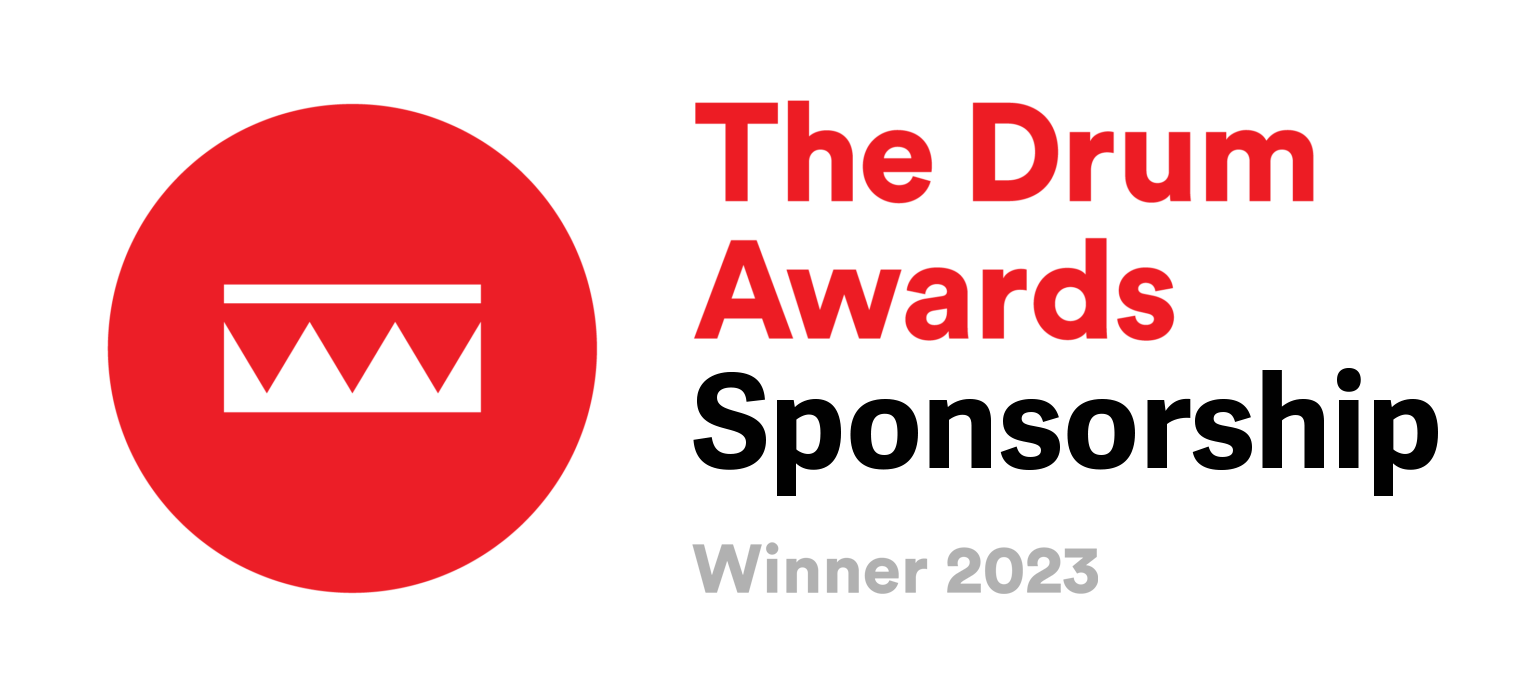Date Added: 24.06.2025
Mins Read: < 1 min
Author: Chris Southgate
How does branding add value?
How does branding add value?
Discover how branding adds real business value, from customer trust and premium pricing to employee engagement and expansion.
When most people think about branding, they think of logos, colours, and straplines. But branding is so much more than visual design—it’s a strategic asset that can significantly enhance the value of your business. Whether you’re a start-up looking to make your mark or a global company evolving for the future, your brand plays a crucial role in shaping perception, driving growth and building long-term equity.
At CHS, we believe great branding sits at the heart of great business. From brand strategy and messaging to development, design and delivery, we help organisations define what makes them distinctive, and bring it to life in powerful, measurable ways.
Below are the ten ways in which we feel branding truly adds value to a business.
Differentiation in a crowded market
A strong brand helps you stand out in a sea of sameness. In competitive industries where products and services often feel interchangeable, your branding creates a point of difference. It gives customers a reason to choose you over someone else, not just once, but repeatedly.
Think of how Oatly stands out in the plant-based milk space. Its playful, rebellious tone and distinctive packaging have made it instantly recognisable and culturally relevant.
Customer recognition, trust and loyalty
Trust is the foundation of every strong brand relationship. In an age of information overload and rising scepticism, customers are drawn to brands they recognise and feel confident in. Consistent branding across visuals, tone of voice, messaging and experience signals professionalism and reliability. This consistency gives people the reassurance that they know what to expect from you, whether they’re visiting your website, seeing an advert, or buying in-store.
Loyalty, meanwhile, is what happens when that trust is earned repeatedly over time. A brand that stands by its promises, delivers value, and aligns with a customer’s values becomes more than just a provider, it becomes part of their routine or identity. That loyalty doesn’t just result in repeat purchases; it also fuels word-of-mouth advocacy, stronger lifetime value, and resilience in the face of competition.
Premium pricing power
Branding enables businesses to command higher prices by building perceived value. When a brand communicates quality, exclusivity, heritage or innovation through its identity and storytelling, customers are often happy to pay more, even when lower-cost alternatives exist.
This premium perception is not always about tangible differences in the product. Often, it’s about the emotional assurance and lifestyle signals that come with buying from a well-positioned brand. Think about luxury fashion, high-end audio equipment, or niche wellness products - branding elevates the offer and appeals to desire, not just utility.
Premium pricing not only increases profit margins, but also strengthens brand positioning. A higher price point can reinforce the perception of quality and exclusivity, which in turn can attract a more affluent or aspirational audience. Done correctly, strong branding and pricing power feed into each other, driving long-term brand equity.
Emotional connection with customers
Good branding speaks to the heart, not just the head. By tapping into values, beliefs and aspirations, your brand can create emotional bonds that go beyond rational decision-making. These connections drive loyalty, advocacy and even forgiveness when things occasionally go wrong.
Brands like John Lewis have cultivated strong emotional associations with trust, family and tradition, especially through campaigns like their iconic Christmas adverts.
Stronger employee engagement
Your brand isn’t just for your customers, it’s also one of the most powerful tools for attracting and retaining great people. A clearly defined and purpose-driven brand helps employees understand the company’s mission, values, and direction. When people know what the brand stands for, and feel proud to represent it, they’re more engaged, motivated, and aligned in their roles.
This engagement has a direct impact on business performance. Studies have shown that highly engaged teams lead to better customer service, higher productivity and increased profitability. It also has financial benefits when it comes to recruitment and retention. Companies with strong employer brands spend less on hiring and experience lower turnover, cutting the costs associated with onboarding, training and lost productivity.
A consistent brand culture also fosters alignment across departments. When everyone is speaking the same language and working towards the same vision, decision-making becomes faster and more focused, creating an internal cohesion that supports long-term growth.
Increased business value and brand equity
Your brand is a business asset, and often a hugely valuable one. Companies with strong brand equity typically enjoy greater market share, higher stock prices, and increased acquisition value. In some cases, the brand itself is worth more than the company’s tangible assets.
Global giants like Coca-Cola, Nike and McDonald's have built brand equity that delivers long-term financial returns far beyond their product range.
Improved marketing efficiency
Strong branding makes every pound of your marketing budget go further. With a well-defined brand identity and messaging framework in place, campaigns are quicker to brief, easier to create, and more likely to resonate with your audience. Creative teams don’t have to start from scratch every time, they have a clear foundation of tone, values, visual style, and key messages to work from.
This level of clarity reduces inefficiencies and ensures a consistent customer experience across touchpoints. Your audience becomes familiar with your look, voice and story, so you don’t have to constantly reintroduce yourself. Recognition increases response rates, which means your ads, emails, social content and website convert better with less effort.
Moreover, brand consistency builds cumulative equity. Each marketing activity builds on the last, strengthening your brand presence over time and improving recall. The result? Better ROI, reduced wastage, and campaigns that feel more connected and impactful.
Simplified decision-making for consumers
In a world full of choice, customers often rely on brand cues to make quick decisions. If your brand is well known and clearly positioned, you reduce friction in the buying journey. Customers don’t have to weigh every option, they gravitate to the brand they recognise and trust.
This is particularly important in fast-moving consumer goods, where snap decisions are the norm and mental availability is everything.
Facilitates business expansion
A strong brand acts as a launchpad for growth. When customers already trust and relate to your brand, it’s easier to introduce new products, services, or enter new markets. That existing brand equity lowers the barrier to entry; you’re not starting from zero, you’re building on a reputation.
Branding also helps internally when scaling a business. A clear brand strategy gives teams direction when making decisions about product development, partnerships, or international expansion. It ensures that new offerings remain aligned with your values and customer expectations, so growth doesn’t dilute the brand but strengthens it.
Take Amazon, for example. It successfully expanded from books to cloud services, groceries, and more; not just through operational scale, but because its brand promise of convenience, innovation and customer obsession remains intact across every category. The brand acted as a permission slip to grow.
Resilience during challenging times
Well-established brands tend to be more resilient during periods of uncertainty. Whether it's economic downturns, market disruptions, or reputational crisis, a strong brand can act as a stabilising force. It provides assurance to customers and stakeholders, helping the business weather storms more effectively than unknown or untrusted brands.
During the COVID-19 pandemic, for instance, brands with strong reputations saw faster recovery and retained customer loyalty despite disruption.
Branding isn’t just a creative exercise, it’s a commercial advantage. From building emotional loyalty and justifying higher prices to improving internal culture and fuelling business growth, a well-crafted brand adds tangible, measurable value at every level. It’s not simply how your business looks; it’s how your business thinks, speaks, and connects.
At CHS, we help brands unlock their full potential by building identities that don’t just look great, they work hard. If you’re ready to create a brand that adds real value, we’d love to talk.
Our
Awards
B2B Campaign Winner 2024

Sponsorship Winner 2022

Best Paid Social Winner 2021

Best Use of Video Winner 2021

Highly Commended - PMAs 2022

Best Finance Campaign 2021

Best Financial Services
Campaign Winner 2020

Best Financial Services
Campaign Winner 2020

Rated 9.2 out of 10
from our clients

Marks & Spencer Food Portraiture 2nd Place 2020


